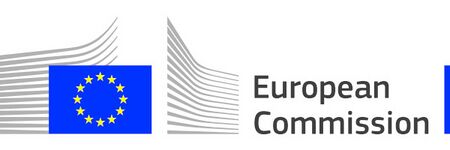European Commission
- Members
The aims of the European Union within its borders are: promote peace, its values and the well-being of its citizens. offer freedom, security and justice without internal borders, while also taking appropriate measures at its external borders to regulate asylum and immigration and prevent and combat crime.
Activities

|
Global Digital Single Market for Smart Cities FIWARE | |
| The project will demonstrate the potential impact of creating a digital single market for smart cities based on the adoption of a minimum common set of de-facto platform standards enabling solutions to interoperate within, and be replicable across, multiple cities. | ||

|
ROSE - Real Time Operational Smart Grid for Europe | |
The ROSE project is
| ||

|
Real Time Resilience | |
Objectives
| ||

|
Impact of Open Source on the European economy | |
| The Commission has published the results of a study analysing the economic impact of Open Source Software and Hardware on the European economy. | ||

|
Green airports and ports as hubs for sustainable and smart mobility | |
| Building on best practices, ongoing projects and planned initiatives in European airports and ports, proposals should address the activities EITHER under area A) Green Airports OR under area B) Green Ports. Proposals should clearly indicate which area they are covering. | ||

|
European Innovation Partnership on Smart Cities and Communities | |
| The smart city concept goes beyond the use of ICT for better resource use and less emissions. It means smarter urban transport networks, upgraded water supply and waste disposal facilities, and more efficient ways to light and heat buildings. And it also encompasses a more interactive and responsive city administration, safer public spaces and meeting the needs of an ageing population.
To speed up the deployment of these solutions, the European Commission has initiated the European Innovation Partnership on Smart Cities and Communities that will bring together European cities, industry leaders, and representatives of civil society to smarten up Europe's urban areas. | ||
Details
The European Commission (EC) is the executive branch of the European Union (EU). It operates as a cabinet government, with 27 members of the Commission (informally known as "Commissioners") headed by a President. It includes an administrative body of about 32,000 European civil servants. The Commission is divided into departments known as Directorates-General (DGs) that can be likened to departments or ministries each headed by a Director-General who is responsible to a Commissioner.
There is one member per member state, but members are bound by their oath of office to represent the general interest of the EU as a whole rather than their home state. The Commission President (currently Ursula von der Leyen) is proposed by the European Council (the 27 heads of state) and elected by the European Parliament. The Council of the European Union (informally known as the Council of Ministers) then nominates the other members of the Commission in agreement with the nominated President, and the 27 members as a team are then subject to a vote of approval by the European Parliament. The current Commission is the Von der Leyen Commission, which took office in December 2019, following the European Parliament elections in May of the same year.
History
The European Commission derives from one of the five key institutions created in the supranational European Community system, following the proposal of Robert Schuman, French Foreign Minister, on 9 May 1950. Originating in 1951 as the High Authority in the European Coal and Steel Community, the commission has undergone numerous changes in power and composition under various presidents, involving three Communities.
